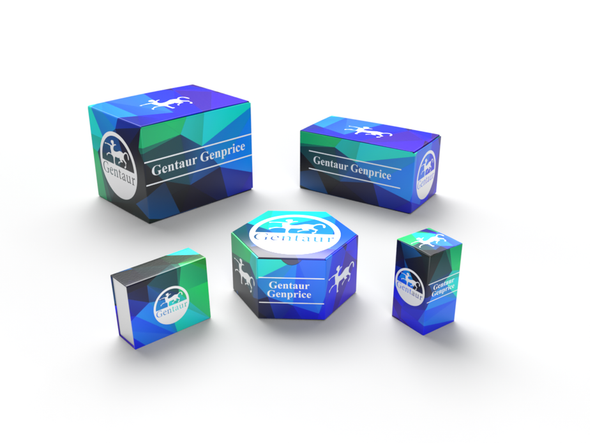Description
IRF7 Antibody | 3941 | Gentaur UK, US & Europe Distribution
Host: Rabbit
Reactivity: Human, Mouse, Rat
Homology: N/A
Immunogen: IRF7 antibody was raised against a peptide corresponding to 14 amino acids near the carboxy terminus of human IRF7.
The immunogen is located within amino acids 420 - 470 of IRF7.
Research Area: Innate Immunity, Cancer
Tested Application: E, WB, IHC-P, IF
Application: IRF7 antibody can be used for detection of IRF7 by Western blot at 0.5 - 1 μg/mL. Antibody can also be used for immunohistochemistry starting at 5 μg/mL. For immunofluorescence start at 20 μg/mL.
Antibody validated: Western Blot in human samples; Immunohistochemistry in human and mouse samples and Immunofluorescence in mouse samples. All other applications and species not yet tested.
Specificiy: N/A
Positive Control 1: Cat. No. 1210 - HEK293 Cell Lysate
Positive Control 2: Cat. No. 1406 - Mouse Spleen Tissue Lysate
Positive Control 3: N/A
Positive Control 4: N/A
Positive Control 5: N/A
Positive Control 6: N/A
Molecular Weight: N/A
Validation: N/A
Isoform: N/A
Purification: IRF7 Antibody is affinity chromatography purified via peptide column.
Clonality: Polyclonal
Clone: N/A
Isotype: IgG
Conjugate: Unconjugated
Physical State: Liquid
Buffer: IRF7 Antibody is supplied in PBS containing 0.02% sodium azide.
Concentration: 1 mg/mL
Storage Condition: IRF7 antibody can be stored at 4˚C for three months and -20˚C, stable for up to one year. As with all antibodies care should be taken to avoid repeated freeze thaw cycles. Antibodies should not be exposed to prolonged high temperatures.
Alternate Name: IRF7 Antibody: IRF7A, IRF7B, IRF7C, IRF7H, IRF-7H, Interferon regulatory factor 7, IRF-7
User Note: Optimal dilutions for each application to be determined by the researcher.
BACKGROUND: IRF7 Antibody: Interferons (IFNs) are involved in a multitude of immune interactions during viral infections and play a major role in both the induction and regulation of innate and adaptive antiviral mechanisms. During infection, host-virus interactions signal downstream molecules such as transcription factors such as IFN regulatory factor-3 (IRF3) which can act to stimulate transcription of IFN-a/b genes. IRF7 has been shown to play a role in the transcriptional activation of virus-inducible cellular genes, including interferon beta chain genes. IRF7 play a major role in the innate immune pathway, interacting with the Toll-like receptor (TLR) adaptor proteins MyD88 and Tirp/TRAM and functioning as an intermediate TLR4 and TLR9 signaling. There are at least four differentially spliced isoforms of IRF7, although their function has not been clearly established.






